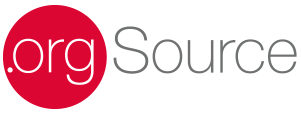Faced With Challenge, ENA Delivers Value

To say that emergency nurses must be ready for anything is an understatement. This is a profession that routinely prepares for the unexpected. As CEO of the Emergency Nurses Association, Nancy MacRae knows how to be sure-footed in a volatile environment. She and her team keep their balance by adapting to change and delivering value.
In 2018, when we thought technology was the wildest card in our deck, I interviewed Nancy for our book, Association 4.0™: Positioning for Success in an Era of Disruption. She made this observation about how she manages the unpredictable.
“We can’t know what will trigger most visits to emergency departments 10 years from now. But it’s critical to continue being in touch and in tune with what is happening. For me, it’s less important to identify what the one disruptor will be than to ensure that we offer the tools and resources for members to provide the best care possible and help drive it in the direction of a stronger profession.
“. . . I know there is discussion among the association community about surviving disruption. I believe that to thrive, you need to constantly adapt. To succeed, you can’t just experience the change. You must be the change. I think ENA is perfectly positioned to meet that challenge.”
Find the Opportunity
It turns out Nancy was right. Although ENA’s members are among the groups most impacted by the pandemic, the organization identified the opportunity in crisis and used it to grow recruitment, engagement, and long-term affiliation.
I invited Nancy to tell that story to our Association 4.0 podcast audience. This post recaps the episode.
Nancy is celebrating her fifth anniversary at ENA. The organization is now 53,000 members strong—10,000 more members than when we talked in 2018. ENA’s mission is to advance excellence in emergency nursing and to be the premier organization representing emergency nurses worldwide.

I was curious to learn whether the pandemic had changed Nancy’s approach to leadership and how she was able to continue operating from a position of strength.
“The pandemic had an impact on emergency nurses like no other event,” Nancy advises. “The disruption emphasized the markers for success which I view as delivering value and being flexible. It reinforced the benefits that associations can offer their members and the knowledge that they can continue to make a difference for the professions they represent.
“Adaptability is a hallmark of emergency nursing. The pandemic shone a light on that important quality. In early 2020, we eliminated our robust list of organizational goals. We had eight to 10 initiatives we hoped to accomplish during the year. They were thoughtfully crafted in a collaborative process, but we saw the need to pivot.”
Make an Impact
“We agreed to focus all our attention on supporting nurses on the frontline and building our organization for the future. Repositioning allowed us to see great results in outreach, impact, and engagement as well as realize significant growth in our membership numbers.”
This ability to find advantage in every set of circumstances, whether favorable or not, is a quality that .orgSource has identified as key to success in disruptive markets. Nancy explained how her team discovered that sweet spot like this.
“We were witnessing excessive burnout. Nurses were leaving the profession and hospitals were struggling to fill the vacancies creating holes in the system-wide distribution of care. But on the plus side, the opportunities were clear.
“We understood that the organization could influence the pipeline to rebuild as well as provide training, skills, and opportunities to strengthen professional resiliency. We could support our members’ mental health, redress systemic inequities that were amplified through the pandemic, and most importantly, create a blueprint for a healthier work environment.”
Focus Priorities
“Building that better workplace is a huge undertaking,” Nancy observed. “It was difficult to consider how to tackle such significant issues. We identified a three-pronged approach. Our plan focuses on delivering impact around the individual nurse, nursing systems, in particular, emergency departments and hospitals, and the profession from an advocacy and public health messaging policy standpoint. Education is the cornerstone of our activities, so we are transforming our programming to address those variables.”
It was encouraging to learn that Nancy and her team adapted their initiatives so successfully to the stressful environment. I also wondered how they managed some of the emotional and technological problems that we all faced.
“Our biggest challenge now is burnout and the number of people leaving the profession,” Nancy advised. “We need to reignite energy and passion. Emergency nurses support each other and take great comfort in their network. It’s our job to use technology and other tools to discover how to facilitate those connections. With 53,000 worldwide members, that’s a fascinating opportunity for growth.”
Be Curious, Listen, and Learn
Even in the best of times, leadership is a lonely responsibility. During a crisis, that sense of isolation is magnified. I asked Nancy how she thinks CEOs can better position themselves and their organizations for success. Her response echoes advice I’ve heard from other savvy leaders.

Nancy recommends keeping an open mind and cultivating a curious attitude. “Listen to learn, accept what you’re hearing, and dig deep into the questions. Leaders need to be willing to consider a variety of opinions and to build teams that have those skills, Nancy advises. “A strong partnership with the board that allows for meaningful dialogue has also been important for our organization and my personal satisfaction. We advance the profession when we challenge ourselves and our teams to continue to grow.”
“The most engaged customers are your members,” Nancy notes. “But we are going to see different ways of partnering with people, whether its members, vendors, key influencers, or nonmembers. It comes back to finding ways to deliver value in all those markets. That new thinking needs to guide the evolution of the association business model.”
Technology is sparking much of that innovation. “Hybrid is here to stay,” Nancy emphasizes. “So it’s important for all of us to continue learning what a hybrid model means for delivering products, education, networking, and advocacy.”
Digital platforms and systems are driving invention. They connect members to each other and our brands with ease. But Nancy and I agreed that the human qualities guiding those systems create the foundation for success.
ENA’s consistent search to find the opportunity, even in challenging circumstances, steered the organization toward growth. The team’s willingness to adapt and to focus on building engagement by delivering value was important before the pandemic, is seeing it through the disruption, and will continue to guide their choices in an uncertain future.

